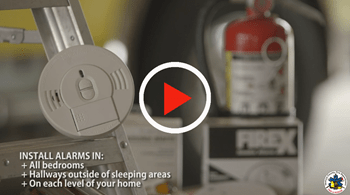Home Fire Safety
Get to Know EDITH
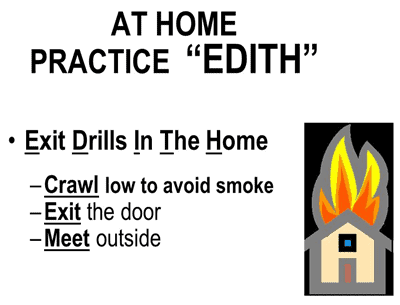
When it comes to staying safe in the unfortunate instance of a home fire, it’s best to become familiar with EDITH. We’re not talking about a friendly neighbor, but rather an equally allied acronym that stands for Exit Drills in the Home.
Performing Exit Drills in the Home will help you and your family prepare for any emergency. Remember, most home fires in particular occur at night. The more you prepare to evacuate your home during challenging circumstances, the more you will maximize your safety in the face of fire or other disasters.
Here are some additional helpful tips.
- Practice fire drills regularly, using your escape plan
- GET OUT of your house—and STAY OUT!
- Crawl low under the smoke
- Feel doors with the back of your hand for heat before opening
- Once outside, use a phone to call 911 and report the fire
Stay Cool While Cooking in Your Kitchen
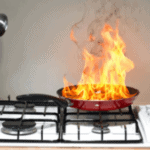
Did you know that cooking is the leading cause of home fires and home fire injuries? We have prepared some helpful tips to ensure you stay safe while cooking.
- When you use a pot or pan, be sure to have its lid out to cover it
- Turn pot or pan handles inward on the stove, so they can’t be bumped
- Keep all cooking areas clear of combustibles
- Keep small children away from any active cooking area
- If an electrical appliance smokes or emits an unusual smell, unplug it immediately—and don’t use it again until it’s been checked or repaired
You can also watch our helpful home fire safety video and kitchen fire safety video for kids.
Smoke Alarms Save Lives

Working smoke alarms provide an early warning and increase the chance of survival. Did you know:
- Approximately 75% of home fire deaths occur when there is no smoke alarm or a non-working smoke alarm.
- You may only have 2 minutes to safely escape a home fire.
- Closed doors slow the spread of smoke, heat and fire
- Fatal fires often occur at night
Smoke Alarm Guidelines
 | Install smoke alarms inside every bedroom, outside each sleeping area and on every level of the home |
 | Smoke alarms should be tested monthly |
 | Replaceable batteries should be replaced annually |
| Smoke alarms with life-long batteries will work for up to 10 years | |
 | Closed doors slow the spread of smoke, heat and fire |
 | Fatal fires often occur at night |
For more information on how to use and install smoke alarms, click to view our Smoke Alarm Safety video
Be Careful with Candles
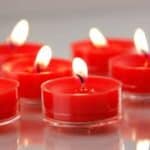
People have always been fascinated with fire, and candles have forever projected an ambiance of calm, romance, and mystery. Today, scented candles are particularly popular among Americans. But did you know that every year in the US, misuse of candles causes around 9,300 residential fires—and $375 million in damages. If you’re going to light a candle in your home, office, or hotel room, it’s best to make sure you know how to play it safe. Here are some tips.
- Always keep burning candles within sight—and extinguish then when leaving a room and before going to sleep
- Use candle holders specifically designed for candle use
- Quality candle holders should be sturdy, heat-resistant, and large enough to safety contain melted wax and drips
- Keep candles far away from furniture, drapes, bedding, carpets, or flammable decorations
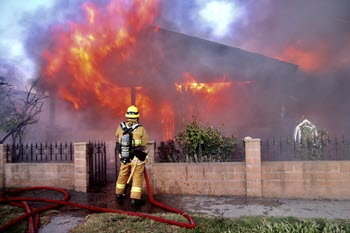
Get additional candle safety tips from the professionals at NFPA here.

